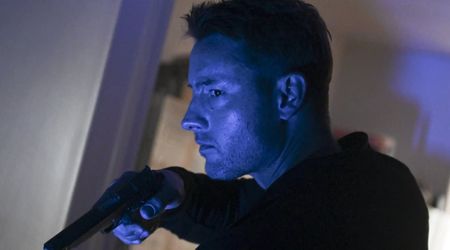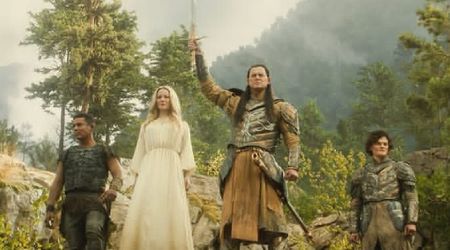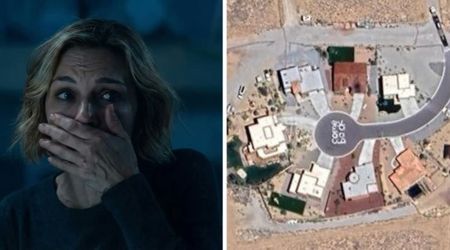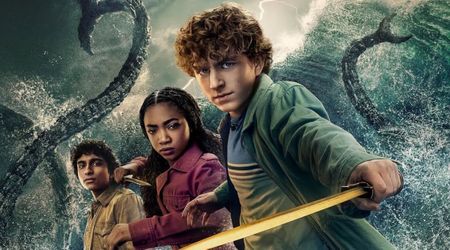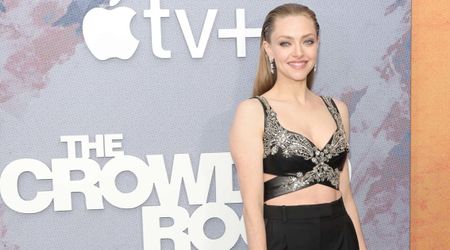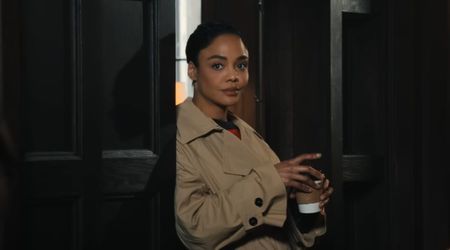While Amazon’s ‘The Feed’ focuses on tech, Black Mirror’s ‘The Entire History of You’ is about human emotion: Similarities and differences

In December 2011, a ‘Black Mirror’ episode titled ‘The Entire History of You’ (referred to as TEHoY henceforth) released. Arguably, one of the better episodes of the technophobic anthology series, the episode examined the effect of a piece of technology called “the Grain”.
The Grain allowed one to record, rewind and replay a person's memories -- all memories. You could cast them on your TV, your phone, your computer; watch them over and over again and relive your highs and lows from your point-of-view.
The Grain bears a startling similarity with another piece of tech introduced in the new Amazon Prime Video sci-fi thriller ‘The Feed’. The eponymous technology allows you to do much more.
It takes things a notch further. With the Feed, you can connect with anyone, you can watch TV, you can alter your physical appearance, you can feel the sensation -- just about everything you can imagine.
There are more similarities. For example, in the world of ‘The Feed’, there exist people who resist this neural network. In ‘TEHoY’, we are shown at least one person who likes to live without having their memories recorded and stored.
In the former, when the Feed glitches, the victims who are affected gouge out their eyes to rid themselves of it. In the latter, Liam Foxwell (Toby Kebbell) takes a knife and tears the Grain from behind his ears at the end of the story.
In both shows, technology has become a part of everyone’s lives, to the point where existing without it is seemingly unimaginable for people. In both shows, this technology ruins lives. But the similarities in the premise end there.
‘TEHoY’ in its focus is much more human. The Grain is incidental to the story, not the focus of it. The focus, on the contrary, is the human emotions of insecurity and jealousy. It is focussed on anxieties that would have existed even without the crucial piece of tech.
Liam, in the story, has been established as an insecure man. He watches and rewatches his performance appraisal meeting. He fixates on a handsome (and to him, more masculine) man called Jonas (Tom Cullen) who it appears is a friend of his wife.
He fixates on their body language when Jonas and his wife Ffion (Jodie Whittaker) converse at a party. And he even tries to interrogate Jonas about their friendship, trying to maintain an aura of casual coolness.
Liam would have been the same man without the Grain. And Liam, in all likelihood, would have ruined his relationship with Ffion even without the Grain. He is a victim of his insecurity, and not the technology itself.
In ‘The Feed’, on the other hand, the tech plays a far bigger role. It is there to provide power to a global corporation. It is there to glitch and malfunction. It is there to be hacked. It is there to have an impact on the lives of many, many people -- not just the show’s main characters.
Even the relationships the main family -- the Hatfields -- share are dependent on the Feed. The show’s imminent plot point is also based on the misuse of the tech and the dangers of it malfunctioning.
With regards to the allegories of global surveillance, the merger of capitalists and state, invasion of privacy and dependence on technology, the story would not exist but for the Feed’s existence.
And this is what makes ‘TEHoY’ a better story. Neither tale is moralistic, but only ‘TEHoY’ is one which leads to introspection. It touches its audience on a level deeper than technophobia. It manages to have an impact. And it does so in a much shorter runtime.
You can embellish a tale by adding more facets to it, by making it more in-depth. But if your basic story lacks the luster, then do those embellishments matter?
‘The Feed’ is available for streaming on Amazon Prime Video.

